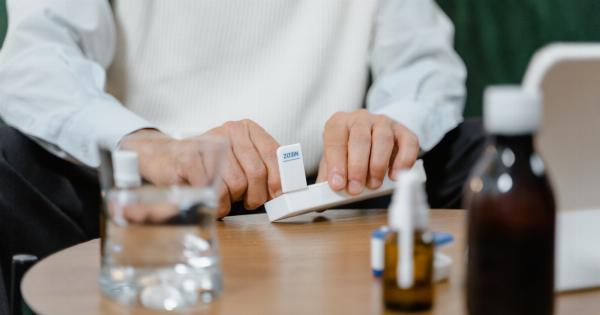Herpes zoster, commonly known as shingles, is a viral infection that causes a painful rash. It is caused by the varicella-zoster virus, the same virus that causes chickenpox.
After recovering from chickenpox, the virus remains dormant in nerve tissue and can reactivate years later, leading to shingles. In this article, we will discuss various ways to defend against herpes zoster and manage its symptoms effectively.
Understanding Herpes Zoster
Before diving into the defense mechanisms, it is crucial to understand the nature of herpes zoster. The virus mainly affects individuals with compromised immune systems, older adults, and those who have had chickenpox earlier in life.
It usually presents as a painful rash with blisters and can occur anywhere on the body. The most common symptom is a burning or tingling sensation before the rash appears.
Vaccination
Vaccination is the primary defense against herpes zoster. There are two vaccines approved for shingles prevention – Zostavax and Shingrix. Zostavax is a live vaccine that can be given to individuals aged 60 and above.
It reduces the risk of developing shingles by about 51% and post-herpetic neuralgia by 67%. Shingrix, on the other hand, is a non-live vaccine recommended for individuals aged 50 and above. It offers greater protection, reducing the risk of shingles by more than 90%.
Boosting the Immune System
A strong immune system plays a vital role in defending against herpes zoster. Making certain lifestyle changes and adopting healthy habits can help boost immunity. These include:.
- Eating a balanced diet rich in fruits, vegetables, and whole grains
- Regular exercise to improve overall health and immune function
- Getting enough sleep to support immune system regeneration
- Minimizing stress levels through relaxation techniques
- Avoiding smoking and excessive alcohol consumption
Antiviral Medications
Antiviral medications are commonly prescribed to manage herpes zoster and reduce the severity of symptoms. They work by stopping the virus from multiplying and accelerating the healing process.
Early treatment with antiviral drugs such as acyclovir, famciclovir, or valacyclovir can help shorten the duration of the rash and decrease the risk of complications.
Topical Treatments
Topical treatments can be used to alleviate the discomfort caused by the shingles rash. Your healthcare provider may recommend over-the-counter creams or ointments containing capsaicin, lidocaine, or numbing agents.
These can help numb the affected area, providing temporary relief from pain and itching.
Pain Management
The pain associated with herpes zoster can be excruciating and long-lasting. It is crucial to effectively manage the pain to improve the quality of life. Some ways to alleviate pain include:.
- Over-the-counter pain relievers such as acetaminophen or ibuprofen
- Prescription pain medications for severe pain
- Topical creams or gels specifically formulated for pain relief
- Antidepressants or anticonvulsants that can help calm nerve pain
- Alternative therapies like acupuncture, massage, or meditation
Preventing Complications
In some cases, herpes zoster can lead to complications such as post-herpetic neuralgia, bacterial skin infections, or eye-related problems. To prevent these complications, it is essential to:.
- Care for the rash and blisters properly to avoid infection
- Protect the affected area from excessive sun exposure
- Maintain good hygiene to prevent secondary infections
- Seek medical attention if there are signs of eye involvement
- Follow the prescribed treatment plan diligently
Supportive Care and Home Remedies
Alongside medical treatments, certain supportive care measures and home remedies can provide relief and promote healing. These include:.
- Applying cool compresses to the affected area to soothe itching
- Keeping the rash clean and dry to prevent bacterial infections
- Wearing loose-fitting and breathable clothing to avoid irritation
- Avoiding scratching the rash, which can prolong healing and increase the risk of scarring
- Using calamine lotion or baking soda baths to reduce itching
Conclusion
Defending against herpes zoster involves a multi-faceted approach, including vaccination, boosting the immune system, and prompt treatment with antiviral medications. It’s essential to manage pain effectively and prevent complications.
By following a comprehensive defense strategy and seeking medical advice promptly, individuals can minimize the impact of herpes zoster and its associated symptoms on their quality of life.






























